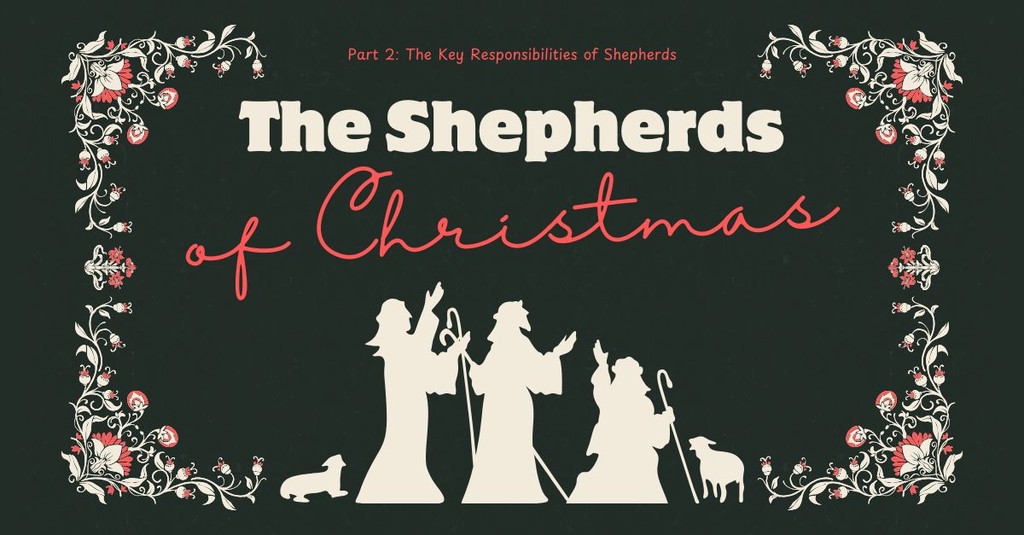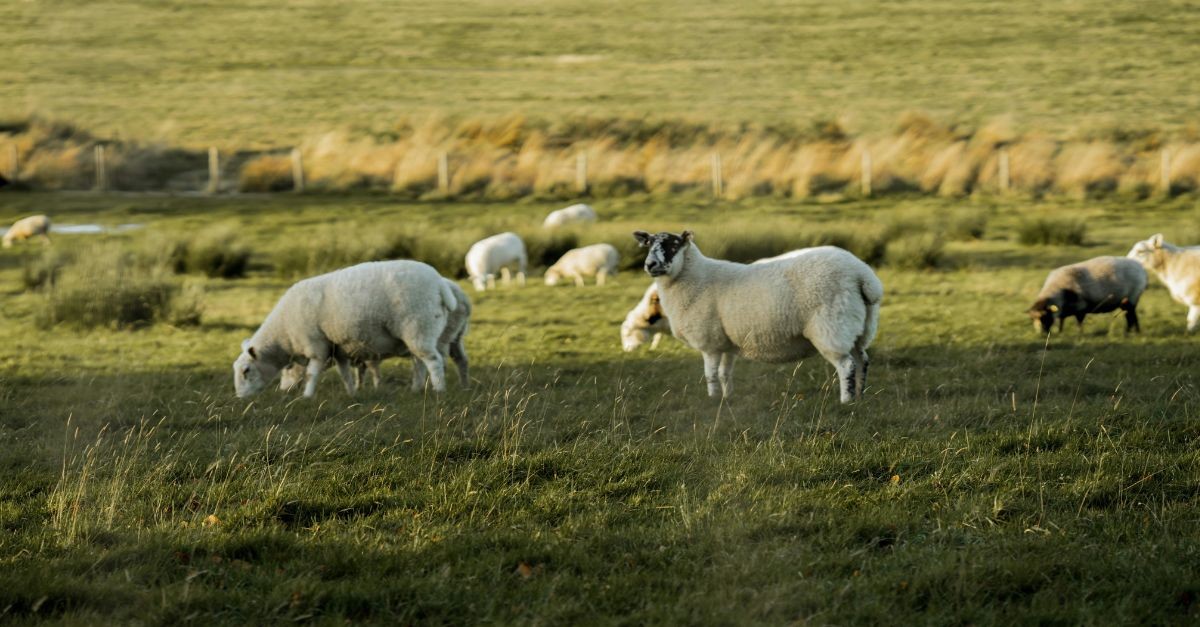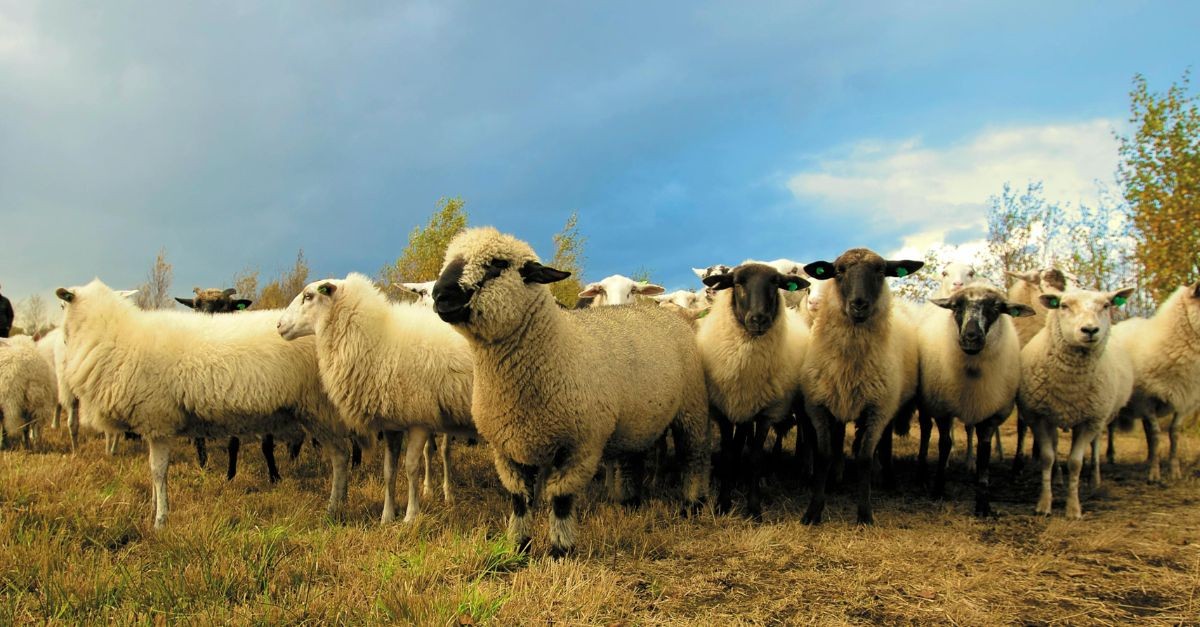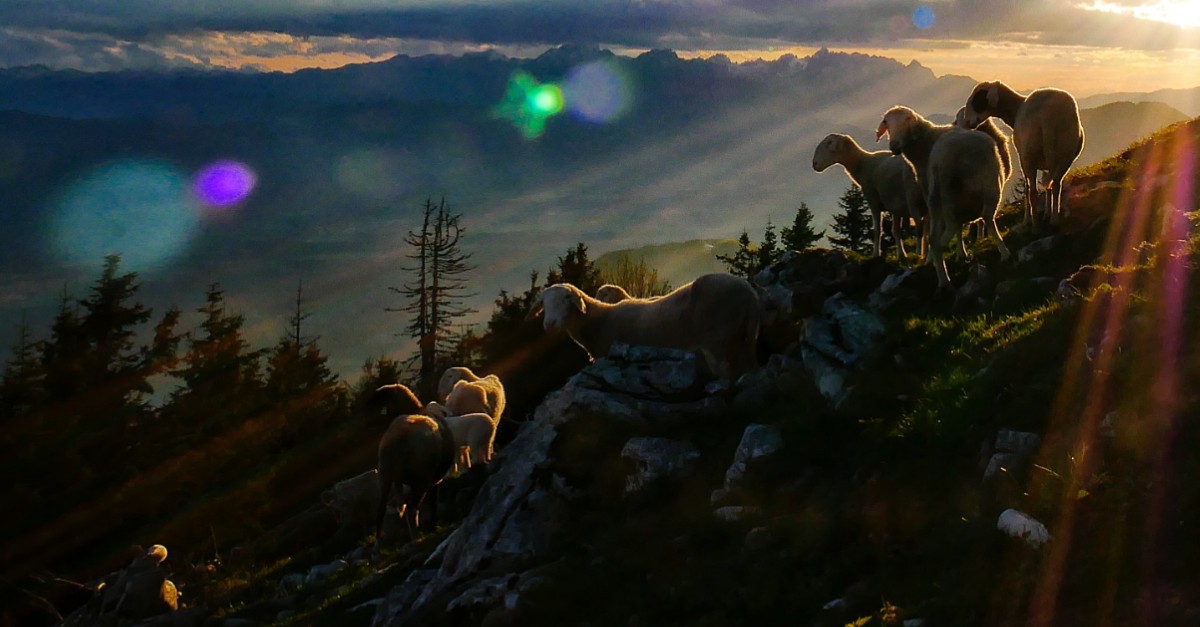
"The Lord is my shepherd, I lack nothing.
He makes me lie down in green pastures,
he leads me beside quiet waters, he refreshes my soul.
He guides me along the right paths for his name’s sake."
- Psalm 23:1-3
Why Is it Significant King David Was a Shepherd?
Through his story and the many Psalms he wrote, David’s life continues to be a source of inspiration and many lessons. Through all of that, it is important to ask why David was so special to God. A poor shepherd boy who became a famed slayer of giants to Israel’s most legendary king. The man after God’s own heart:
"..the Lord has sought out a man after his own heart and appointed him ruler of his people…" - 1 Samuel 13:14
David’s life was filled with many triumphs, but it was also rife with trials and failings—even blatant adultery and murder. Yet, throughout all of this, David held a deep-seated love for God. His psalms display a unique insight into his special relationship with the Lord—one that signals a rock-solid foundation that David could always lean on.
When David was anointed King over Israel by Samuel, he was likely a young teenage boy – perhaps twelve to sixteen. The youngest of Jesse’s eight sons, David was an unlikely choice for king, at least humanly speaking. King Saul, Israel’s first king, was tall, rugged, and handsome – and the chosen king of the people, but did not measure up to God’s standards. Yet, God told Samuel, “The Lord does not look at the things people look at. People look at the outward appearance, but the Lord looks at the heart.” (1 Samuel 16:7). David’s heart was certainly loyal to God.
From Genesis to Revelation, the Bible is replete with references to sheep and shepherds. Shepherds are one of the most enduring and powerful symbols in all of literature, particularly Biblical literature. In the ancient world, shepherds were integral figures—and one of the oldest and most oft-mentioned occupations in the Bible. Abraham, Isaac, Jacob, and Moses—all shepherds.
The Bible’s first mention of shepherds is in Genesis 4. Abel, the son of Adam and Eve, is the first shepherd mentioned. While his story did not last long, his name and standing have obviously endured even to the present day.
Shepherding is indeed the oldest occupation known in the Bible. At one time, it was considered a very reputable role—one that represented some stature and resources. But it seems that by the time of David, that stature had been altered.
David was the youngest of all Jesse’s sons – so young that he was not even invited to the special sacrifice offered by Samuel. (1 Samuel 16:5-6) David was out in the field tending the sheep. What had been a revered role was then relegated to the very youngest – a sibling looked down upon by all his older brothers.
Again, humanly speaking and in society's views at that time, David seemed an unlikely choice to be anointed the second king of all of Israel. Yet…despite these lowly, quite humble beginnings, David was God’s choice. In those beginnings, David developed strong faith and trust in God. God was calling him to shepherd a different flock – His people.
Photo Credit: SWN Design

What Are the Roles of a Shepherd?
"Then he blessed Joseph and said, “May the God before whom my fathers Abraham and Isaac walked faithfully, the God who has been my shepherd all my life to this day." - Genesis 48:15
It should come as no surprise that caring for a shepherd's flock requires many of the same qualities as leading people, especially as a king. Even today, we hear a common euphemism referencing some civil or religious leader as a shepherd of groups of people.
As he was nearing death, Jacob (aka Israel) referred to God himself as a shepherd (Genesis 48:15). Prophets Isaiah and Micah each refer to God’s shepherding of his people (Isaiah 40:11; Micah 7:14). Jesus referred to himself as the “good shepherd” who lays down his life for his sheep (John 10:11). David, of course, referred to God as a shepherd in what is perhaps his most well-known psalm:
The Lord is my shepherd, I lack nothing.
He makes me lie down in green pastures,
he leads me beside quiet waters,
he refreshes my soul.
He guides me along the right paths
for his name’s sake.
Even though I walk
through the darkest valley,
I will fear no evil,
for you are with me;
your rod and your staff,
they comfort me.You prepare a table before me
in the presence of my enemies.
You anoint my head with oil;
my cup overflows.Surely goodness and love will follow me all the days of my life,
and I will dwell in the house of the Lord forever.
-Psalm 23
In this psalm, David relates the many roles of shepherd to God’s care for him – for each of us. Much of David’s life as a shepherd played a significant role after he became king. What he learned leading sheep, he applied as a leader of men.
Photo Credit: ©Pexels/Danielle Block

1. The Role of Constant Care and Unwavering Attention to the Flock
"I lack nothing. He makes me lie down in green pastures, he leads me beside quiet waters."
It would be difficult for us today, in our modern world, to imagine what life was like for a shepherd in David’s time – or any other ancient time, for that matter. Although caring for animals, even today presents its own special challenges. Caring for needy sheep required constant care. Since the best lands were reserved for agriculture, shepherds would have been needed to roam the hills and valleys daily to find enough grass, grain, and water to drink.
During his daily routine, any good shepherd would need to pay attention to the flock's needs – both as a whole and each sheep individually. Sheep tend to wander off – separating from the flock. As sheep are prone to do – the shepherd must keep them from wandering into rapidly moving water as their wool gets wet and too heavy, and they are carried downstream.
So, too, a king must pay attention to the needs of the people of their kingdom – individually and the whole. Like sheep, we, too, are prone to wander off from the flock and from our shepherd.
Photo Credit: ©Pexels/Matthias Zomer

2. The Role of Protective Guardian to Defend the Flock from Harm
But David said to Saul, “Your servant has been keeping his father’s sheep. When a lion or a bear came and carried off a sheep from the flock, I went after it, struck it and rescued the sheep from its mouth. When it turned on me, I seized it by its hair, struck it and killed it. Your servant has killed both the lion and the bear; this uncircumcised Philistine will be like one of them, because he has defied the armies of the living God. The Lord who rescued me from the paw of the lion and the paw of the bear will rescue me from the hand of this Philistine.” - 1 Samuel 17:34-37
While David was still tending sheep – his three oldest brothers went off to serve Saul in battle with the Philistines – and their champion, Goliath. When David temporarily left his flock to deliver food to the warriors in his father’s direction, David discovered that Goliath had the Israeli army frozen in place as no one wanted to face him. David said he would face Goliath – and kill him – just as he had protected his flock and fought off wild beasts about to kill his sheep. And, as we know, he did just that.
Sheep and goats are easy prey, so shepherds must be vigilant in their protection, often endangering their own lives, lest their flock get dragged off and killed. Even then, a flock was likely to scatter and need to be gathered back for its own safety and protection.
We too, can sometimes be easy prey for our enemy, the evil one, who “prowls around like a roaring lion looking for someone to devour.” (1 Peter 5:8)
Photo Credit: ©Pexels/Pixabay - free download

3. The Role of Leadership and Guidance to Lead the Flock to Safety
"He guides me along the right paths for his name’s sake.
Even though I walk through the darkest valley,
I will fear no evil, for you are with me;
your rod and your staff, they comfort me."
In the days of David, there were no fences to contain the sheep. Often, the shepherds had to travel several miles, seeking out adequate pastures and safe ground. Yet, somehow, they could keep their flocks together, even though, during the day, they would spread out to graze and rest. Then, the shepherd would gather the flocks together to trek back to the village before dark or sleep out in the wild with the sheep – remaining vigilant for their protection.
Kings, too, often made extraordinary efforts to lead and guide their “flock.” Our shepherd provides leadership and guidance through His written word and Spirit living within us.
"Guard the good deposit that was entrusted to you—guard it with the help of the Holy Spirit who lives in us." - 2 Timothy 1:14
Photo Credit: ©Pexels/Lukas Hartmann

4. The Role of Building Trust between Shepherd and Sheep
"You prepare a table before me
in the presence of my enemies.
You anoint my head with oil;
my cup overflows."
All of these elements together demonstrate the closeness of the bond between a shepherd and his sheep. He was their constant companion, caring for them as a flock and individually. The sheep would learn to trust the shepherd – listen to his voice and follow his lead. David knew this – and carried all of these elements into his role as king of Israel.
"My sheep listen to my voice; I know them, and they follow me. I give them eternal life, and they shall never perish; no one will snatch them out of my hand." - John 10:27-28
This relationship is reflected in Jesus’ constant care for us, in his protection, leadership, and guidance, and in his willingness to lay down his life for his flock—we, the sheep of his pasture.
Photo Credit: Unsplash/Jaka Skrlep

4 Lessons from David, the Shepherd-King
1. Trust in God
Regardless of the circumstances, giant or otherwise, David showed that with God on our side, we can overcome any challenge, regardless of how insurmountable it may feel.
2. A Heart for God
Reading the Psalms shows us David’s unwavering love for God. David was never afraid to express his distress or disappointment, yet always came back to his trust and heartfelt relationship.
3. Repentance
David was certainly imperfect, just as we are. Yet, he ultimately always faced his mistakes with honesty and humility in seeking forgiveness.
4. God’s Mercy
God’s forgiveness of David was boundless, as is His mercy and forgiveness for us. Even when we fall short – as we do and will continue to – He is ready to forgive us through Christ Jesus.
Regardless of who we are or where we are in life, the life of David is an invitation to each of us today. It is an invitation to align our hearts with God. David’s example encourages us to trust Him – even when the odds seem stacked against us. His life shows us to seek God’s forgiveness – even when we falter beyond what we believe can be forgiven – and to rejoice that He is always with us. We see encouragement to strive to be someone “after God’s own heart.”
Remember, being special to God does not mean we will be perfect. It simply means being open and real with God – humble and repentant, relying on God’s mercy. Being special to God means we make God the central part of our lives and let everything else revolve around that.
“I am the good shepherd; I know my sheep and my sheep know me— just as the Father knows me and I know the Father—and I lay down my life for the sheep." - John 10:11-18
Photo Credit: ©GettyImages/Joaquin Corbalan
Part 1: 5 Wondrous Insights from the Biblical Symbolism of Shepherds
Part 2: How King David’s Life Reveals the Role of a Shepherd
Part 3: 4 Reasons God Chose Lowly Shepherds to Announce Jesus' Birth

Greg doesn’t pretend to be a pastor, a theologian, or a Bible expert, but offers the perspective of an everyday guy on the same journey as everyone else – in pursuit of truth.
Greg can be reached by email or on Facebook @ Greg Grandchamp - Author.
Originally published Tuesday, 29 October 2024.
